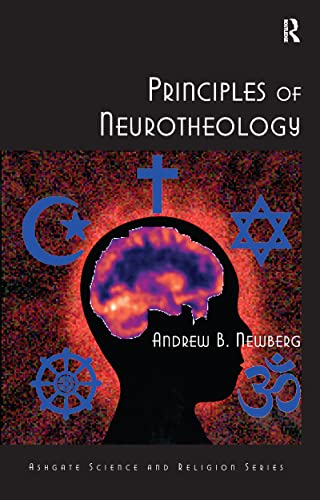Introducing Romans: Critical Issues in Paul’s Most Famous Letter
Written by Richard N. Longenecker Reviewed By Guy Prentiss WatersRichard Longenecker is preparing to crown a distinguished half-century career of NT scholarship with a NIGTC commentary on Paul's epistle to the Romans. As a down-payment on that commentary, Longenecker has provided the academic world this volume, Introducing Romans. As the title suggests, the focus of this work is the host of introductory questions particularly attending the exposition of this epistle. Why has Longenecker not simply cut to the exegetical chase, bypassing such an effort? As he explains in the preface, “particularly in light of the great amount of scholarly study and the diverse opinions that exist today, some overall account and evaluation of the major critical issues in the contemporary study of Romans seems appropriate” (p. viii). The proverbial “proof is in the pudding,” and the sheer range, not to mention the importance, of the issues that Longenecker surveys justifies this assessment.
Introducing Romans is useful in at least two respects. First, Longenecker evenhandedly surveys some of the leading questions relating to the interpretation of Romans. A few examples may suffice to illustrate. He concisely treats not only the particular text-critical questions that have plagued recent interpretation of Romans (pp. 15-42), but also the history and methods of textual criticism more generally (pp. 265-289). For readers bewildered by the technicality of academic discussions of ancient rhetoric and epistolary form, Longenecker readably overviews the ancient evidence and contemporary discussion (pp. 180-225). He lucidly and fairly summarizes the centuries-old discussions concerning the meaning of “righteousness” and “righteousness of God” in Paul (pp. 290-305).
Second, Longenecker charts the interpretative course that his forthcoming commentary on Romans will take. Following Raymond Brown and Wolfgang Wiefel, Longenecker understands the believers in Rome to have been an ethnically mixed body of Jews and Gentiles, all of whom strongly identified, theologically, with the Jerusalem church (p. 82). Paul's two leading purposes in writing this body of believers were (1) to raise financial support for his continuing Gentile mission and (2) to impart a spiritual gift to his readers (Rom 1:11) (p. 158). Longenecker agrees with Gordon Fee in understanding this spiritual gift to be Paul's gospel itself. Even so, we should not understand the entire epistle to be that gift or the gospel that Paul preached on his Gentile mission. It is Rom 5-8 specifically that gives us this gift and gospel (p. 374, passim). What relation, then, do Rom 1-4, 9-11, and 12-16 bear on Rom 5-8? Romans 1:16-4:25 employs: “materials and arguments that [his audience] and [Paul] held in common” (p. 367), that is, what are said to be traditional Jewish-Christian arguments and beliefs. Romans 5-8, on the other hand, show us what Paul preached to his pagan Gentile hearers “who did not think in Jewish categories” (p. 374). The argument of Rom 9-11 resonates, Longenecker argues, with a Roman congregation that had strong ties to the Jerusalem church (p. 410). Romans 12:1-13:14 comprises, with the exception of 13:1-7, the hortatory portions of Paul's gospel (p. 437), whereas 14:1-15:13 addresses issues of specific interest to Rome.
Longenecker's proposal concerning Rom 5-8 merits further consideration. Longenecker understands Paul's gospel, reflected in Rom 5-8, to represent the apostle's “contextualization” of the gospel for pagan hearers, just as Paul could also “contextualize the Christian gospel in Jewish ways of thinking and Jewish forms of expression” (pp. 151-52, cf. 373, 407). He understands Paul's Gentile gospel to have been “based on being 'justified by faith'” (p. 374, citing Rom 5:1). Paul, however, develops “justification” in 1:16-4:25 in ways that Longenecker understands to “rest solidly on Jewish foundations”: “the righteousness of God,” “justification,” “expiation-propitiation,” “divine impartiality,” and “faith” (p. 366). Paul's Gentile gospel therefore opted not to address such themes as “justification, redemption, and expiation” (“not always meaningful to Gentiles who had no Jewish or Jewish Christian background”) but develops instead such themes as “peace,” reconciliation,” being “in Christ,” and being “in the Spirit” (p. 406).
What are we to make of Longenecker's understanding of Rom 5-8? Consider the frequency of Paul's verbal and conceptual pairing of “Jew” and”Greek” in 1:16-4:25 as a means of underscoring the universality both of humanity's plight and the gospel's solution to that plight. It is therefore difficult to accept the proposal that “justification” played no material role in Paul's Gentile preaching. Further, in light of the way in which “justification” provides the underpinning to Paul's argument in 5:1-11 and dominates the argument of 8:1-39, it is hard to accept the break between 1:16-4:25 and Rom 5-8 for which Longenecker pleads. With respect to justification, at least, Rom 5-8 seems to represent an extension of Paul's earlier effort in 1:16-4:25. One also wonders why, in a section said to summarize Paul's Gentile preaching, the apostle devotes extensive space to the question of the Mosaic Law (7:1-25). If, according to Longenecker, what Paul is describing in Rom 7 resonated with and came to expression in “the literature of the Greco-Roman world,” then perhaps the distance between what are said to be Jewish and Gentile categories and patterns of thought is not as unbridgeable as Longenecker elsewhere suggests they are (p. 408).
In the penultimate sentence of this book, Longenecker promises that his forthcoming commentary will show how each section of Romans “functions as a paradigm . . . in contextualizing” the gospel (p. 468). For this, and many other reasons, I eagerly await the release of this commentary. In the meantime, I will relish and turn often to Introducing Romans for the rich resource that it is.
Guy Prentiss Waters
Guy Prentiss Waters
Reformed Theological Seminary
Jackson, Mississippi, USA
Other Articles in this Issue
Evaluating a new English translation of the Bible can be extremely difficult...
In the November 2009 edition of Themelios, Dane C...
Jonathan Edwards (1703-1758) is remembered today as a saint, scholar, preacher, pastor, metaphysician, revival leader, theologian, Calvinist—the list goes on...
Almost two decades ago I wrote an essay titled " When Is Spirituality Spiritual? Reflections on Some Problems of Definition ...
He was the youngest son of elderly parents. His childhood was secluded and unhappy, which might in some measure account for his lifelong melancholy...







